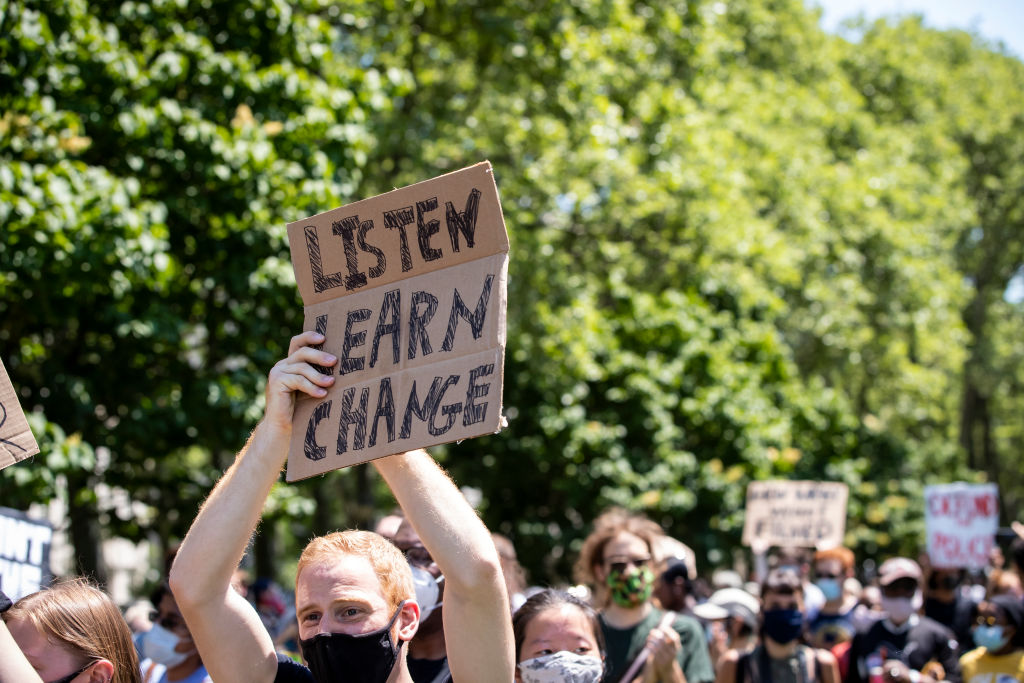The number of white U.S adults who think that the country has a race problem has decreased sharply as Black Lives Matter protests over racial injustice continue, a new poll shows.
The survey conducted by the Barna Group, an evangelical Christian polling firm, shows that the number of overall adults, white adults and practising Christians who say that race is a problem in the U.S has shrunk.
The poll, which surveyed 1,525 adults, showed that the percentage of adults of all ethnicities who believed the U.S. has a race problem decreased from 49 percent last year to 46 percent this year.
Amongst white adults, the difference is starker, as only 37 per cent of those polled believe race is a problem in the country, compared to 46 percent which said so last year.
There has also been an increase in the percentage of practising Christians who say that race is “not at all” a problem in the U.S., up from 11 per cent last year to 19 per cent in 2020, according to Barna’s poll.
A higher percentage of Black adults believe America has a race problem than in 2019, with the percentage increasing from 72 percent to 76 percent this year. The number becomes even larger amongst self-identified Black Christians, 81 percent of who believe that the country has a race problem.
The study surveyed 1,525 U.S. adults online between June 18 and July 6. The margin of error of the poll is plus or minus 1.8 at a 95 percent confidence interval.
Despite the lack of acknowledgement for the current issues surrounding race, the survey showed an overall increase in agreeing with the statement that historically, the U.S. has oppressed minorities amongst all its racial and religious demographics.
Nevertheless, the poll also revealed that the number of those who were “not at all motivated” to address racial injustice has increased amongst overall U.S. adults. The percentage rose from 9 percent to 16 percent in the past year, while the number of those who were “very motivated” to tackle racial injustice saw a jump from 14 to 18 percent.
Barna’s poll happened just as protests took place across the country, starting in late May after Goerge Floyd was killed in Minneapolis, Minnesota. Demonstrations continued in cities like Washington D.C. and New York, as more killings were brought to light, including that of Ahmaud Arbery and Breonna Taylor in Kentucky.
Despite lockdown restrictions due to the coronavirus, by mid-June when the survey took place there had also been protests around the world, with notable demonstrations taking place in Paris, Sydney, London and Berlin.
